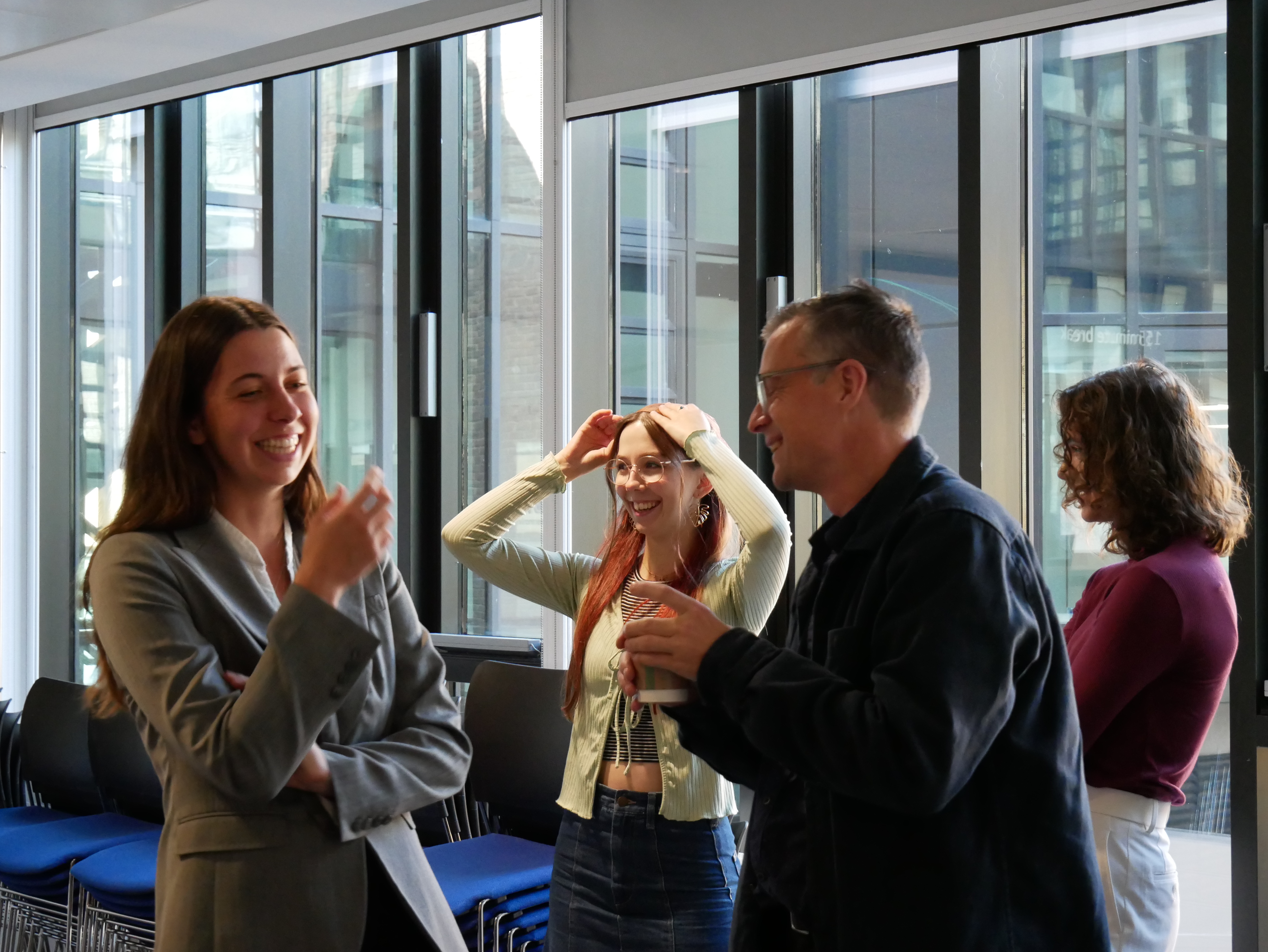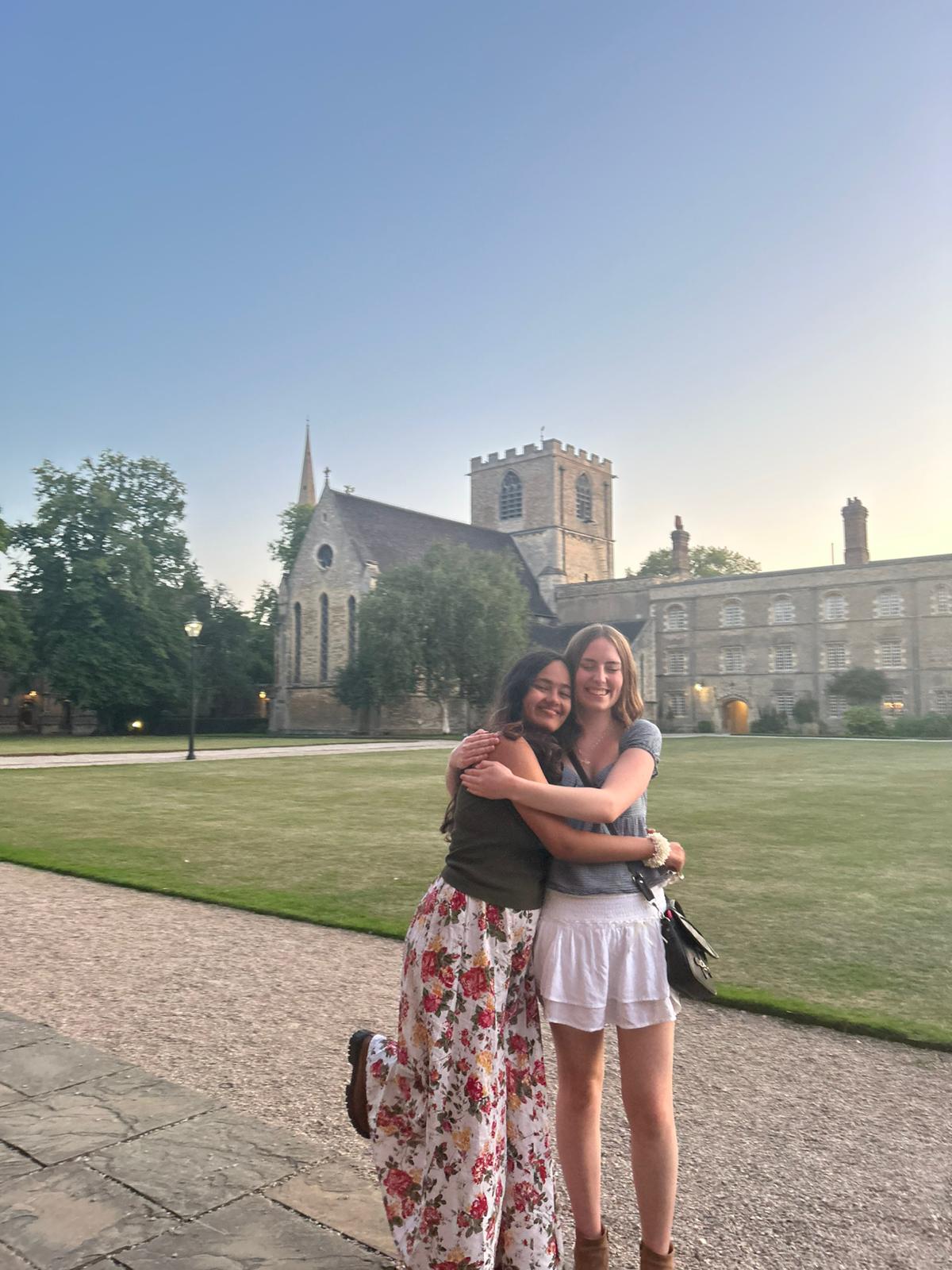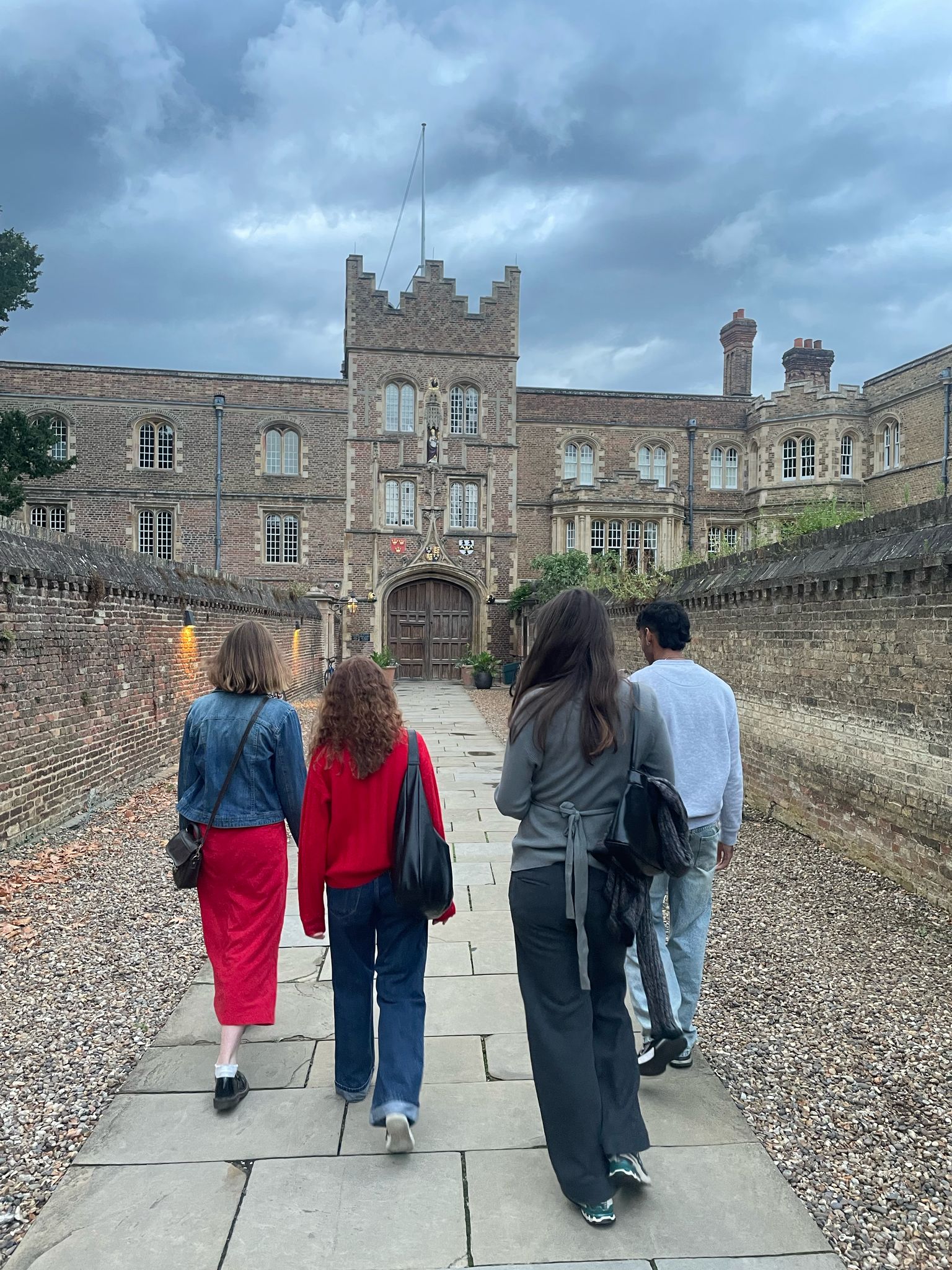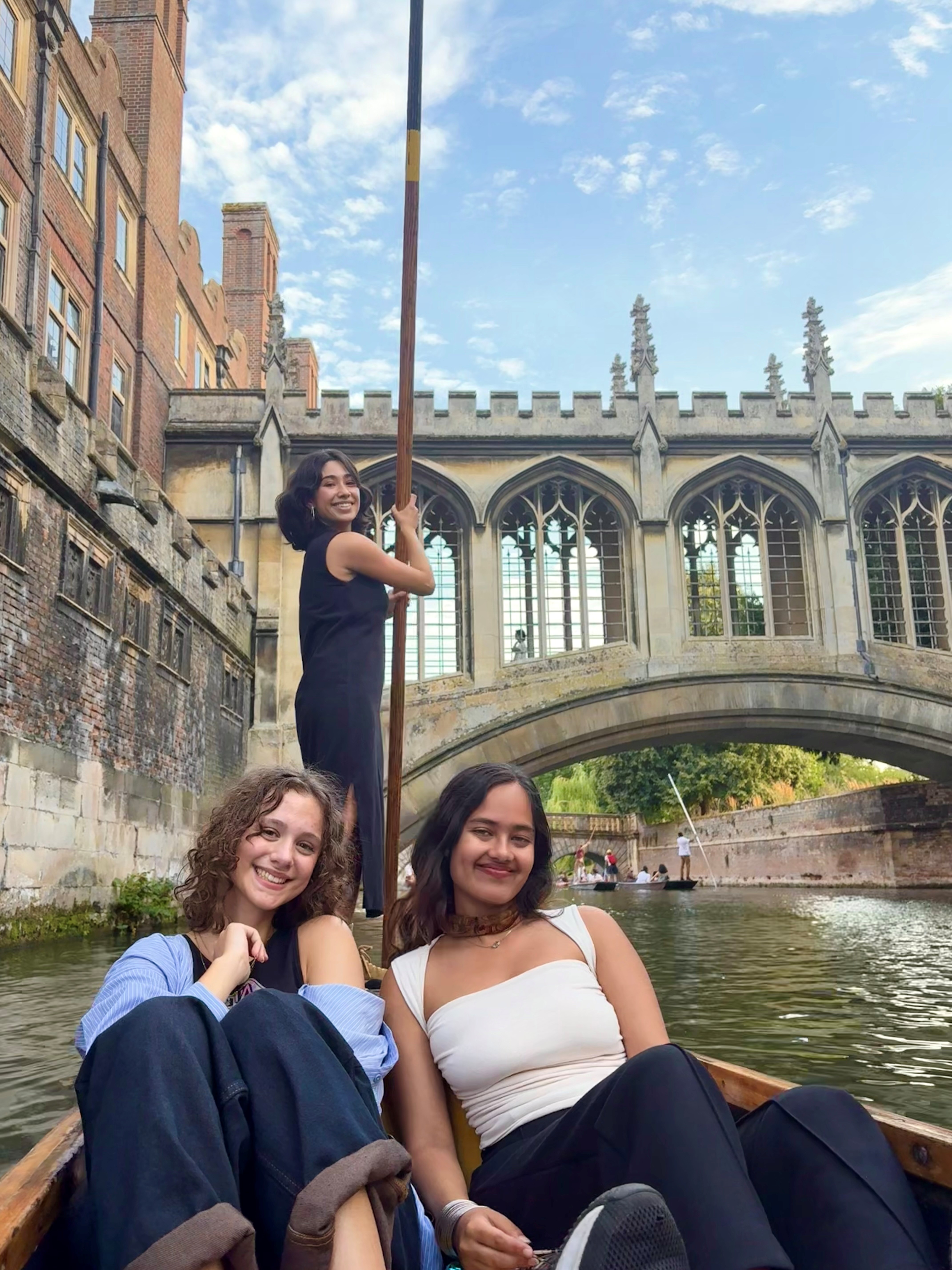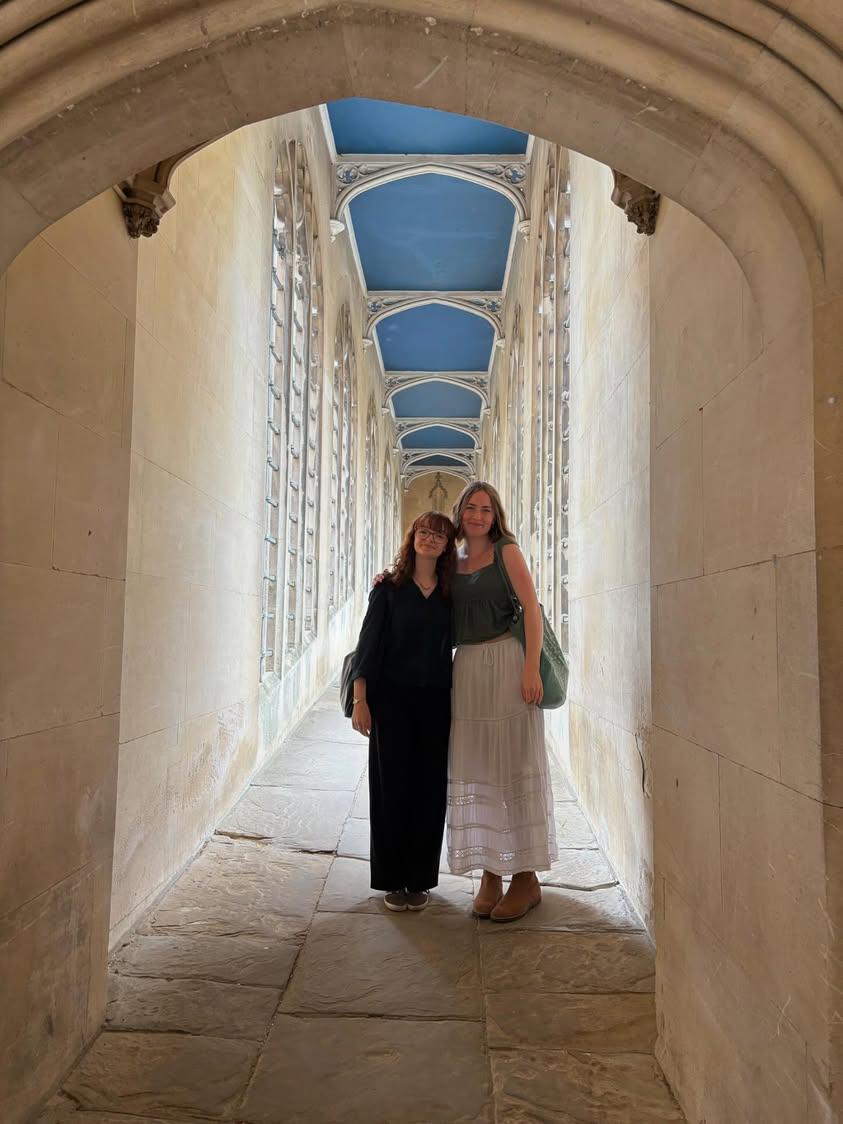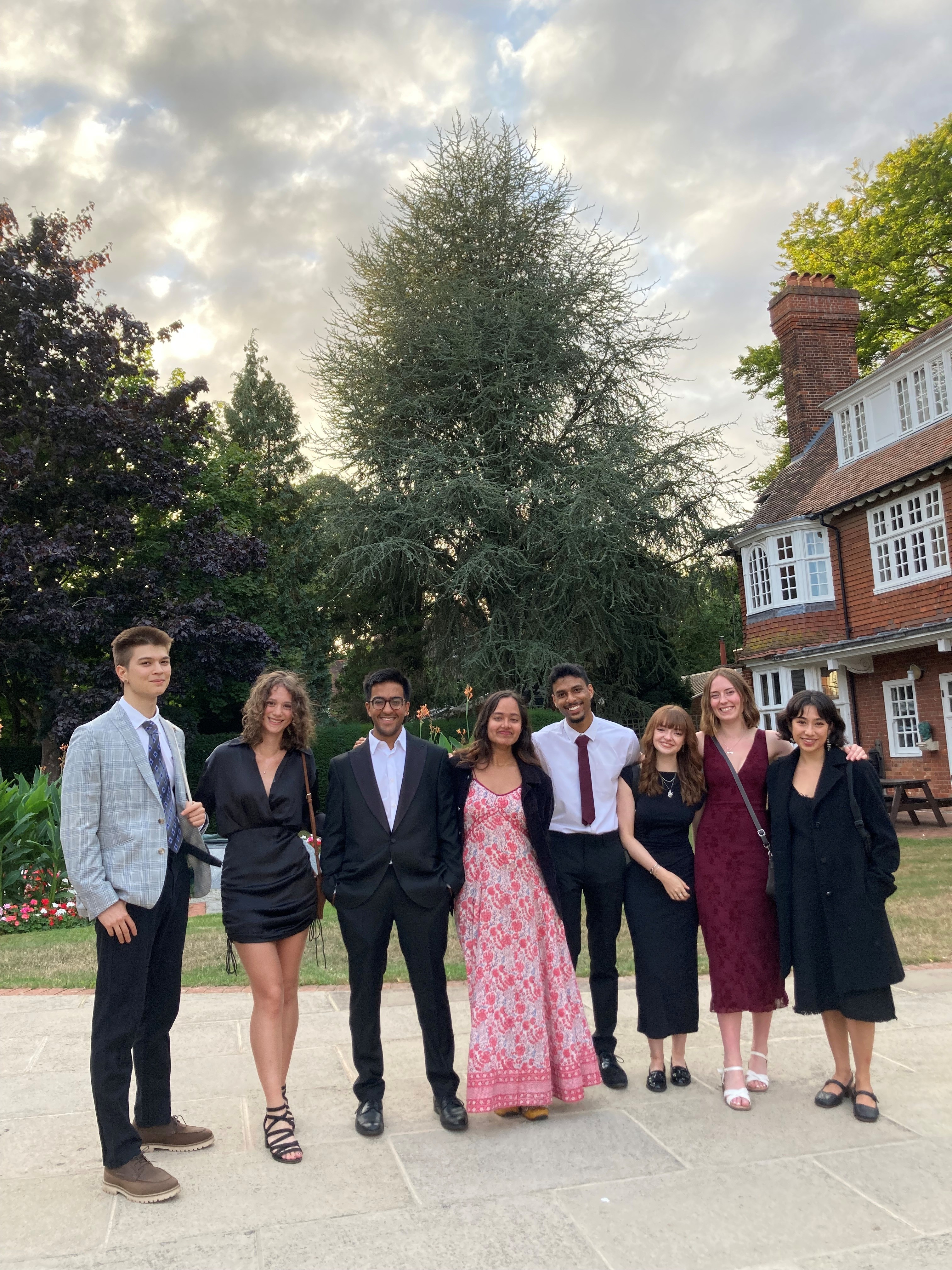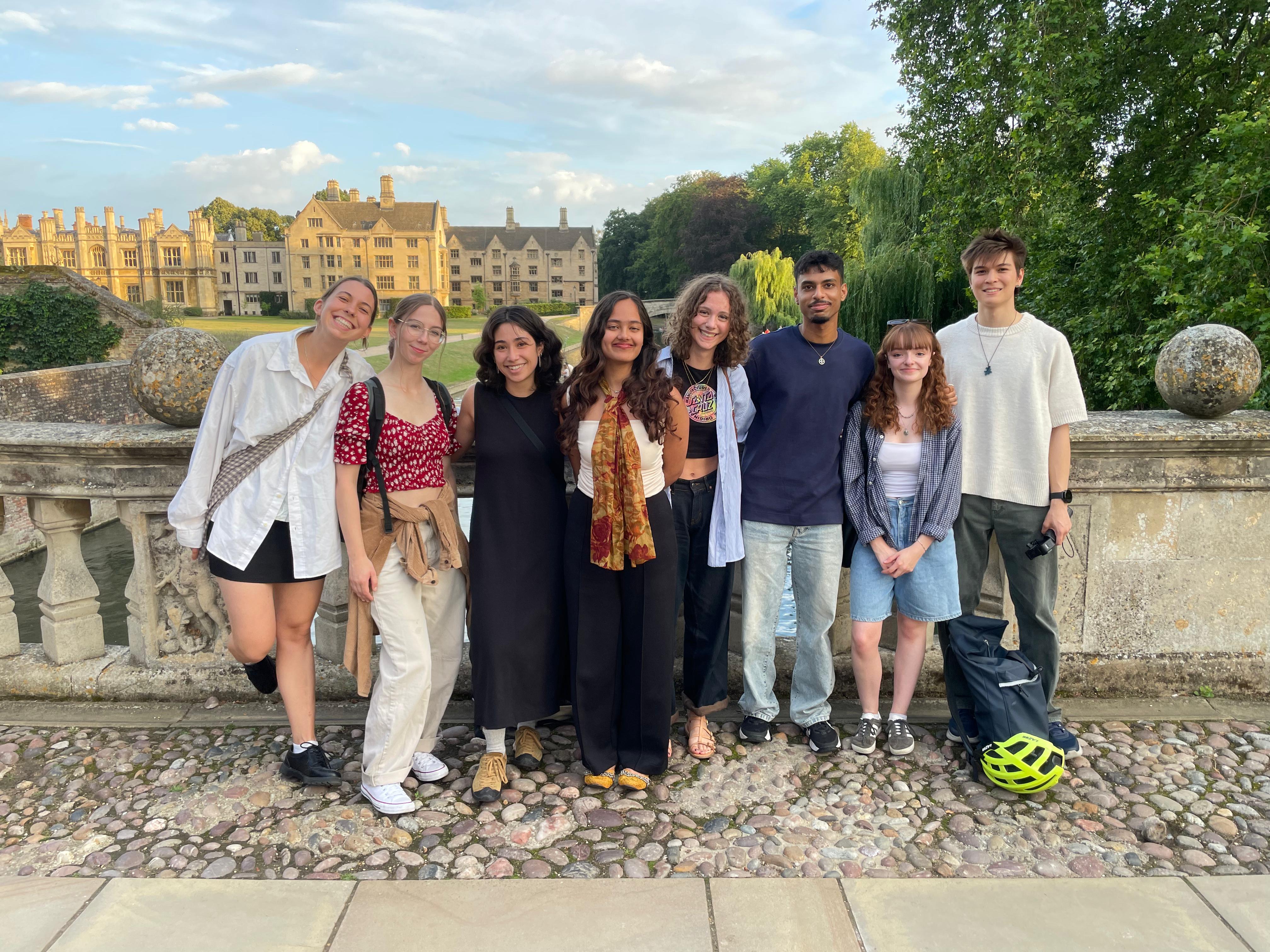
Future Leaders for a Flourishing Planet
By Annie McKenzie
From dragonfly populations to policy papers, Cambridge Zero challenged nine future leaders to spend summer 2025 tackling critical climate issues.
Their projects stretched across labs, landscapes, and lecture halls, each one a bold step toward a more sustainable future.
Together, this year’s cohort on the Cambridge Zero Future Leaders Programme traced carbon footprints, mapped the reach of education, uncovered biodiversity’s secrets, charted Cambridge’s innovation network, and imagined more sustainable ways of living. Each project, distinct yet connected, adds a thread to a larger tapestry of solutions for a changing world.
Designed for students and recent graduates, the Future Leaders Programme (FLP) offers an opportunity to contribute to the University of Cambridge’s efforts to drive climate solutions while developing research and professional experience.
From mid-July to September 2025, the cohort explored Cambridge’s research landscape, spending eight weeks embedded across departments including the Centre for Landscape Regeneration (CLR), the School of Biological Sciences, the School of Clinical Medicine, and CSaP - the Centre for Science and Policy. One project, co-hosted with the Future Homes Hub, extended beyond the University’s walls, bridging academic insight with real-world innovation.
A phenomenal group, full of insightful questions, clever solutions, and help for each other.
Ben Taylor, Student Engagement Manager, Cambridge Zero
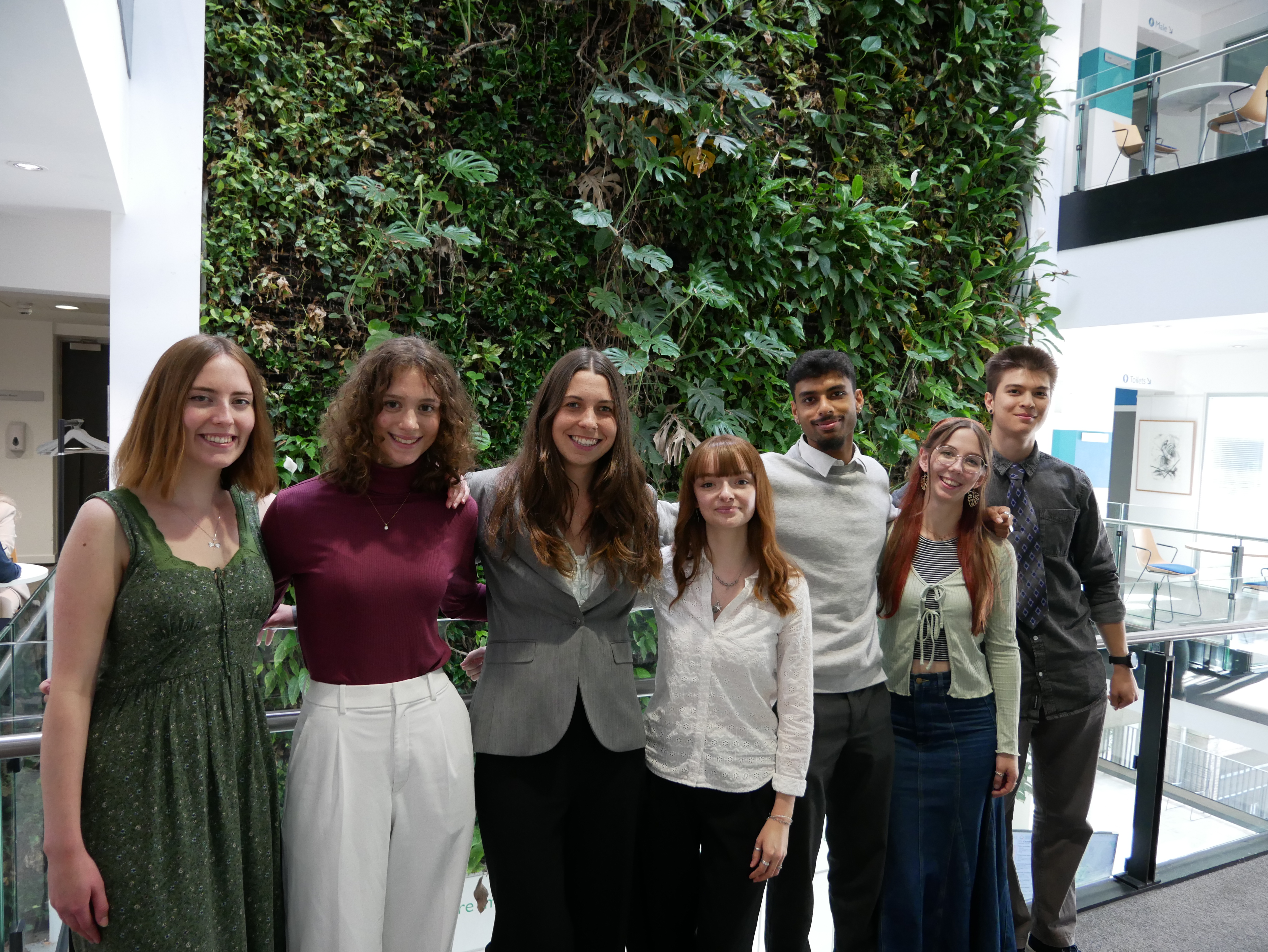
From Beginnings to Belonging
Cambridge Zero also held the inaugural Future Leaders Programme Alumni gathering at Trinity Hall. The event brought together members of the 2025 cohort with alumni from previous years, creating a space to share experiences and reflect on its impact since it launched during the Covid-19 pandemic.
Among the returning alumni were Robyn Topper and Nathaniel Wright, who spoke about their career journeys since the FLP. Rachel Stoner, who now works in New Zealand, offered unique insights into sustainability regulations in the Pacific Islands.
Stoner said the programme was "the perfect introduction to the sustainability sector, helping her to understand the types of roles and work available, just as she was graduating and beginning to transition into her career in sustainability."
“Both the technical knowledge I had started to develop during the internship, and the skills in data gathering and modelling were a useful base for my job,” she said.
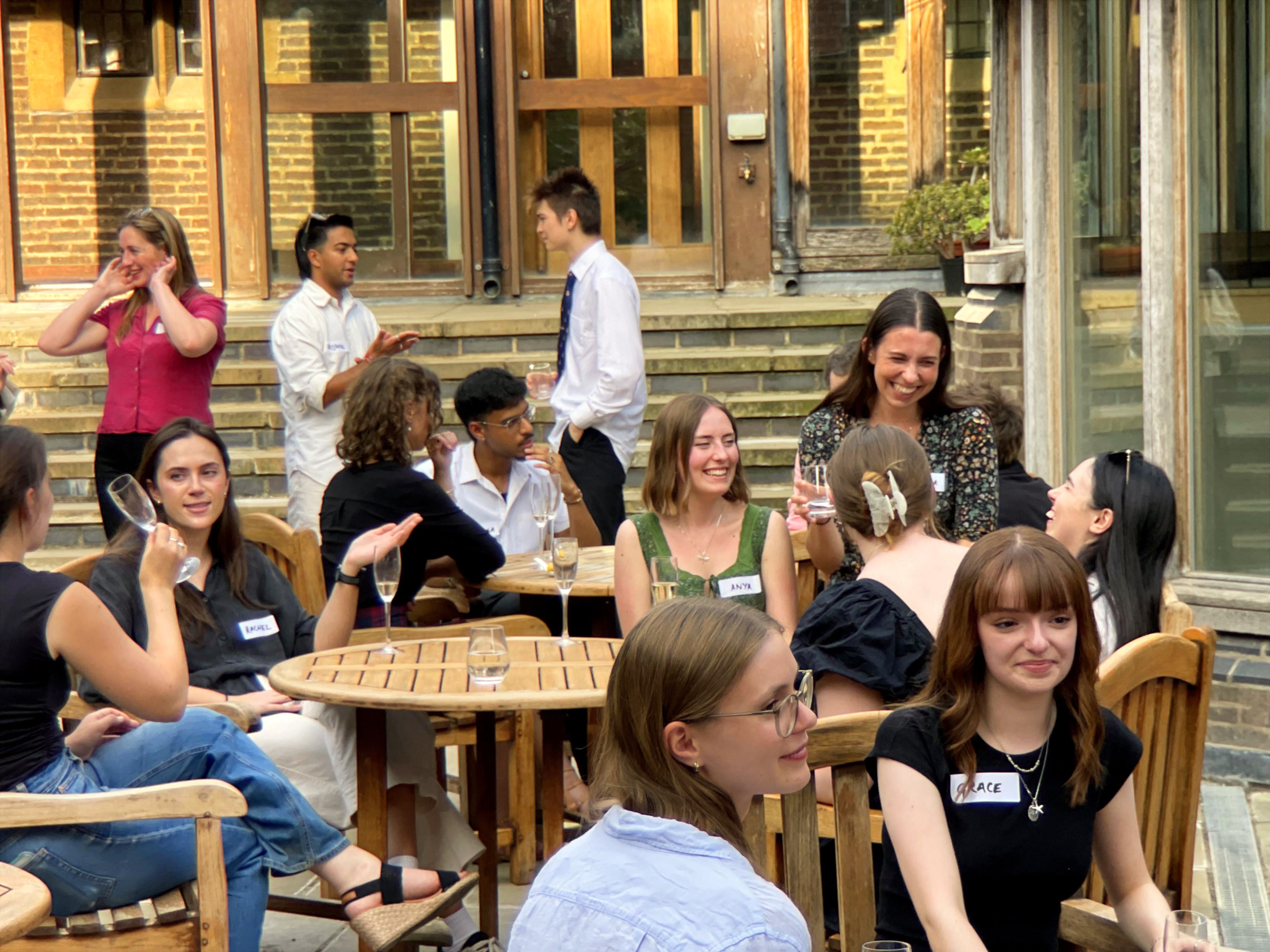
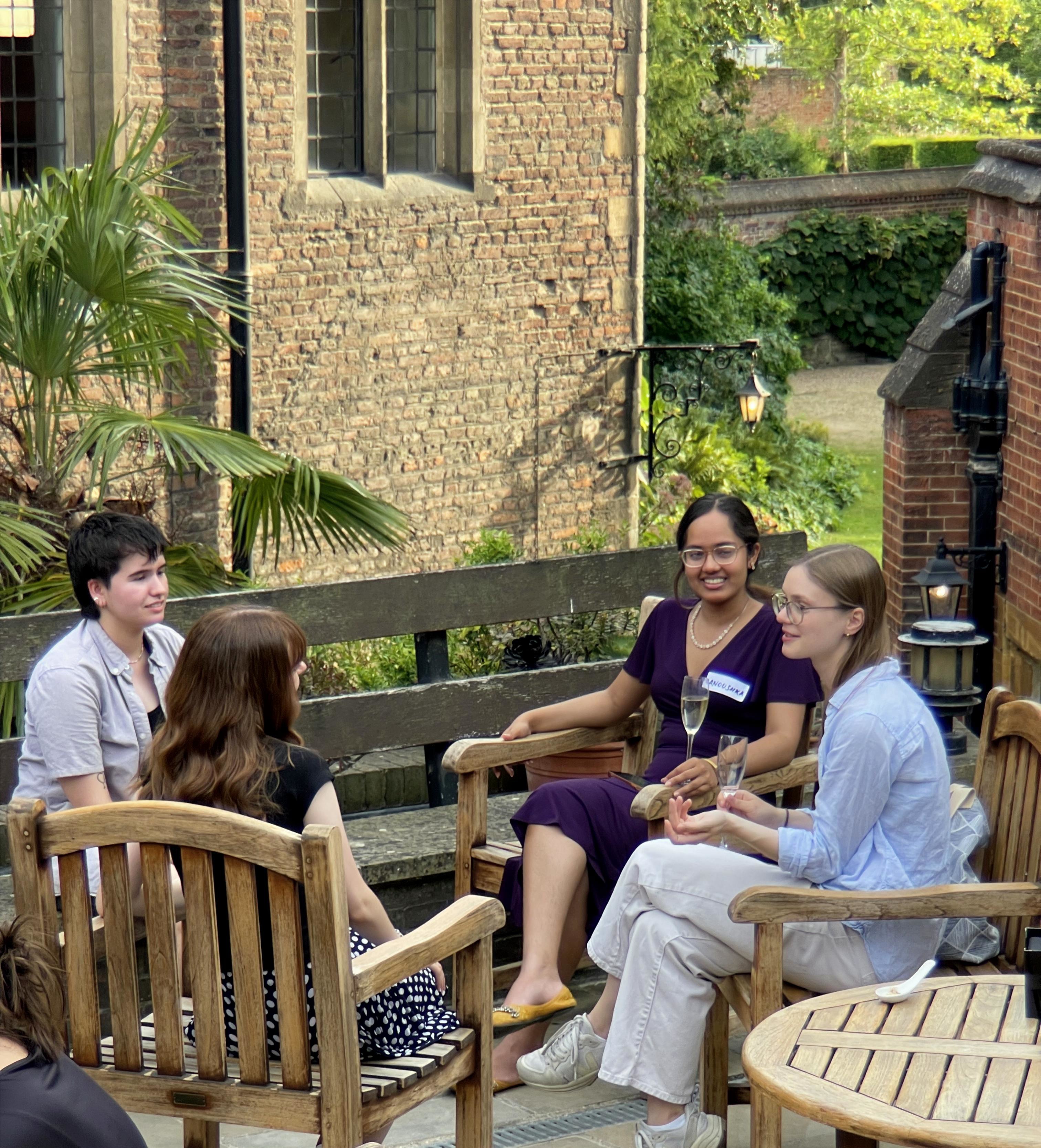
During my internship at Cambridge Zero, I developed a carbon foot printing tool, which ended up being directly relevant to the work I did in the early years of my consulting career.
Rachel Stoner, 2020 FLP Cohort
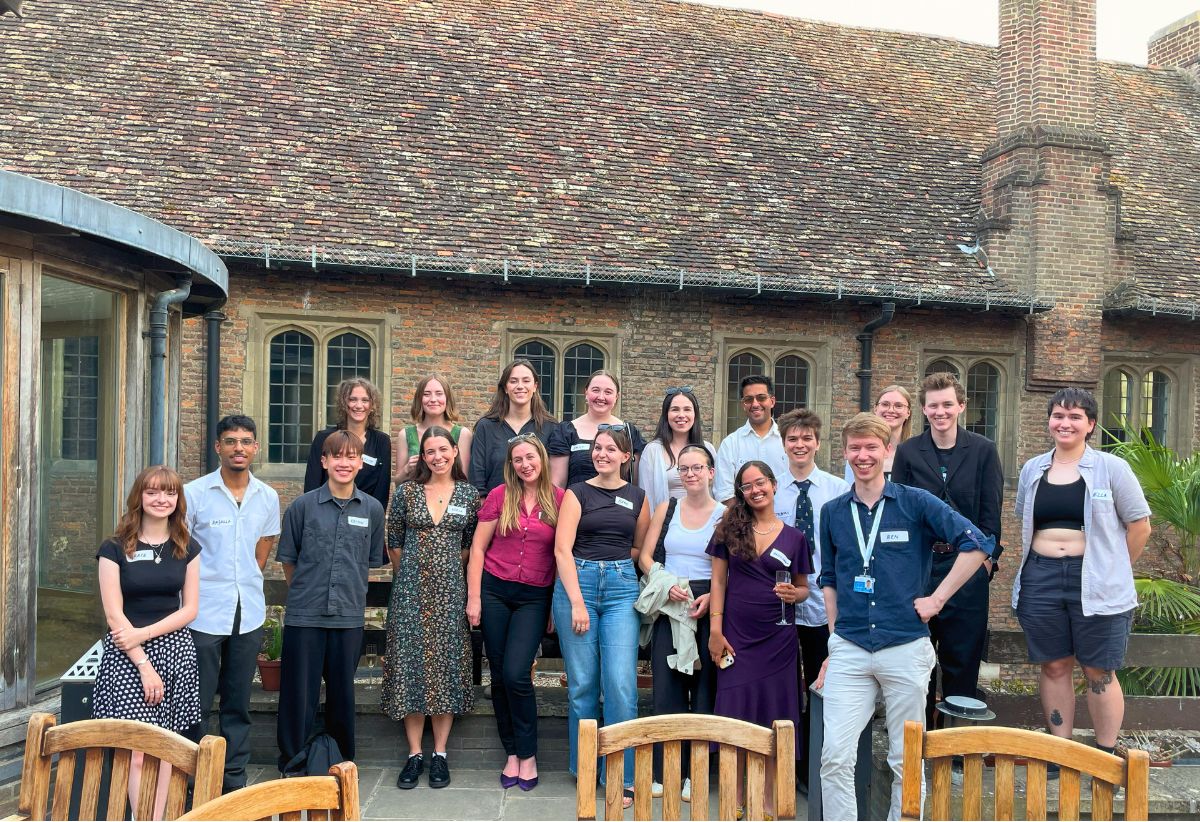
Spiders, Sedges, and Systems
Ellie Moscrop and Joseph de Laubenque worked on biodiversity projects in the Cambridgeshire Fens, supported by the Centre for Landscape Regeneration (CLR).
Ellie’s project took her from farm ditches to nature reserves, testing water quality and studying the life within them. She focused on dragonflies and spiders, natural pest controllers that help maintain a healthier landscape by reducing farmers' reliance on chemicals. While investigating how different habitats and farming practices affected species richness and abundance, Ellie’s findings revealed that the physical structure of the ditches had a greater impact on biodiversity than the type of farming being carried out.
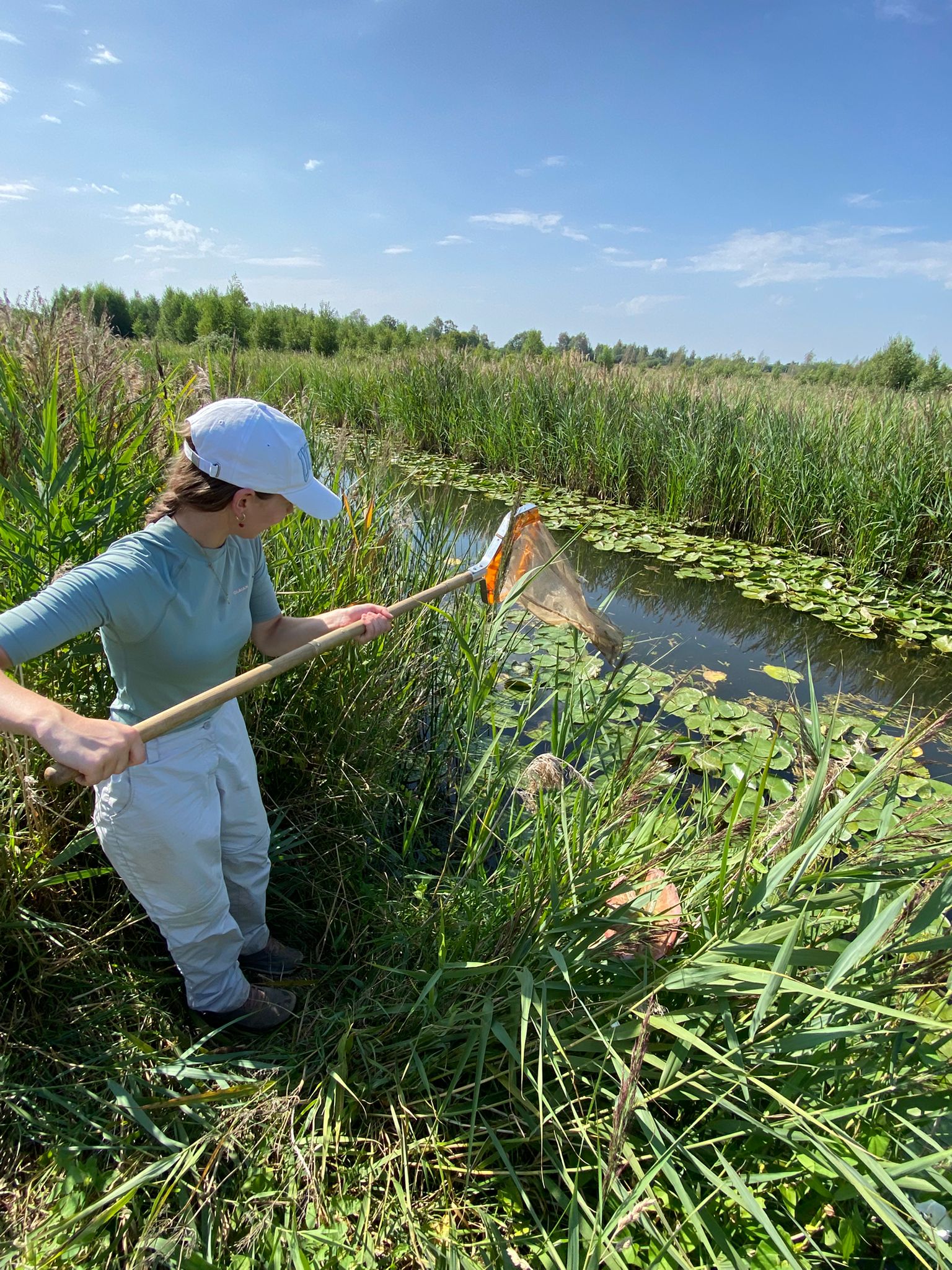
The Fens make up 48% of the UK’s most fertile grade 1 land - it’s the most important land for commercial, arable farming in the UK.
Ellie Moscrop
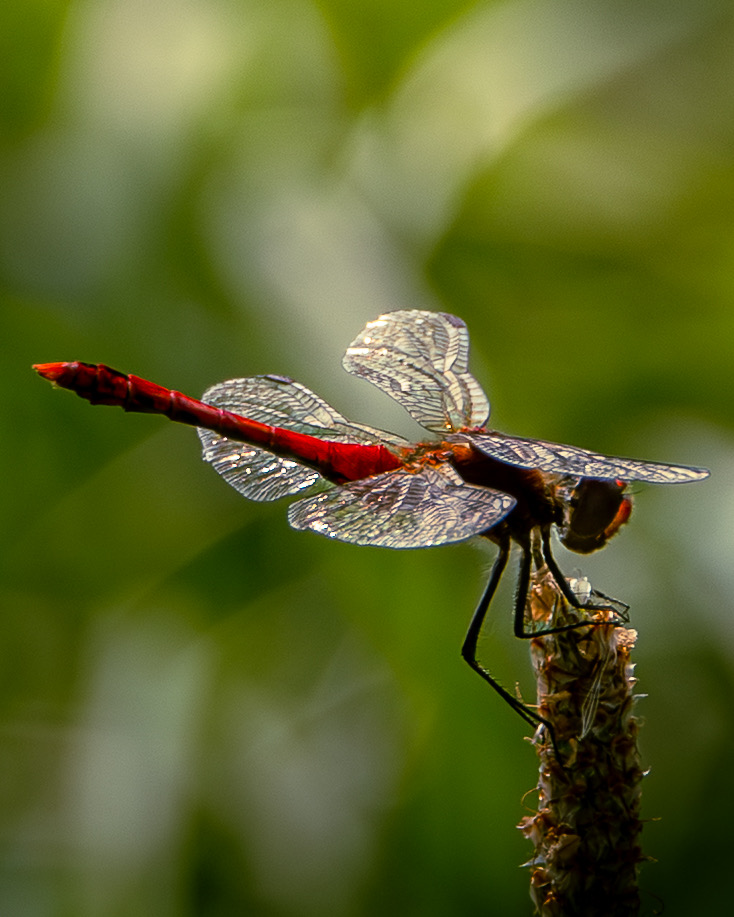
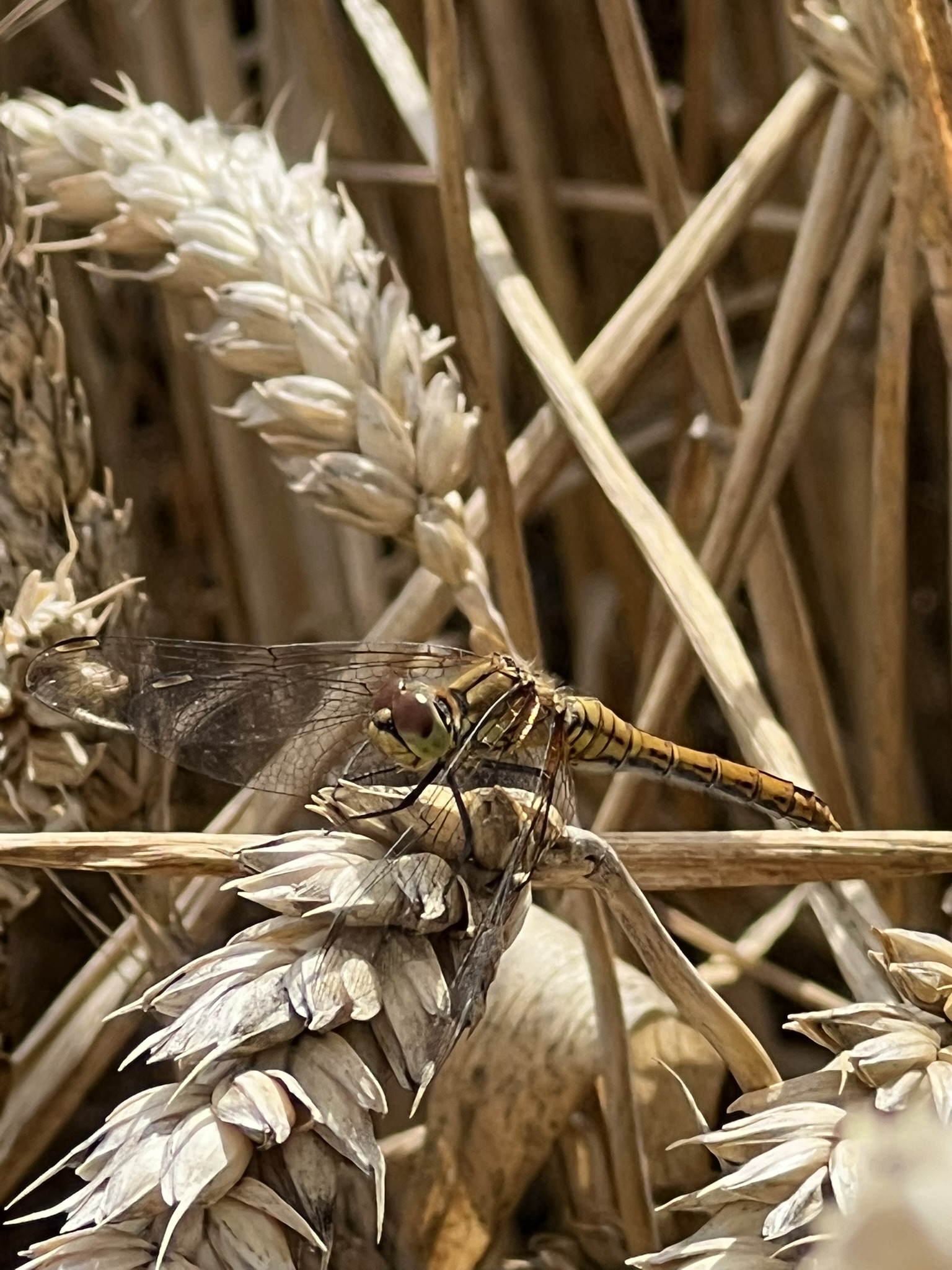
Joseph’s project focused on sedges, plants with degradation-resistant cell walls that play a crucial role in peat formation. His work formed part of a wider series of CLR projects on peatland restoration, ecosystems that are not only among the most carbon-rich on Earth but also vital for biodiversity and natural flood management.
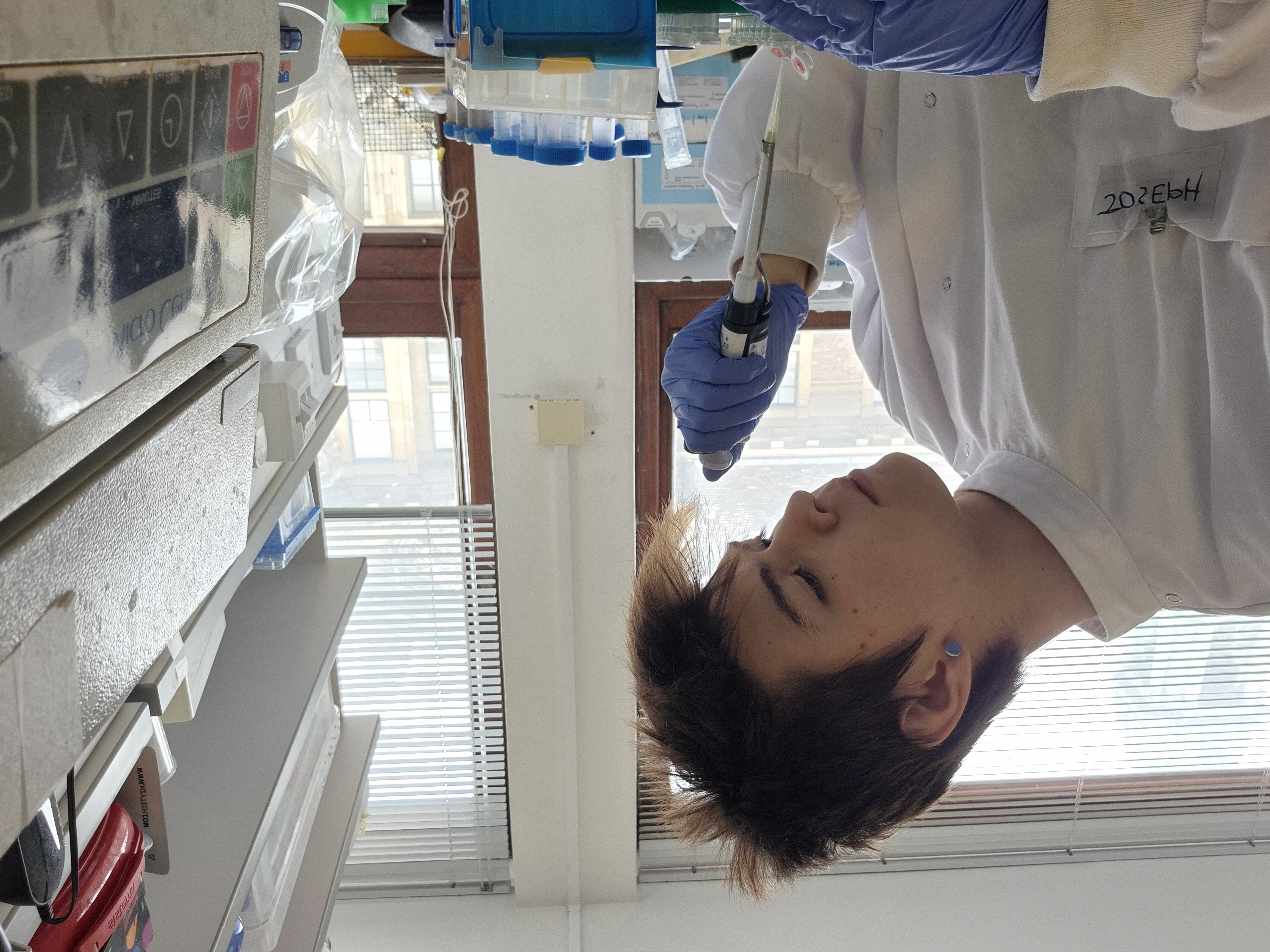
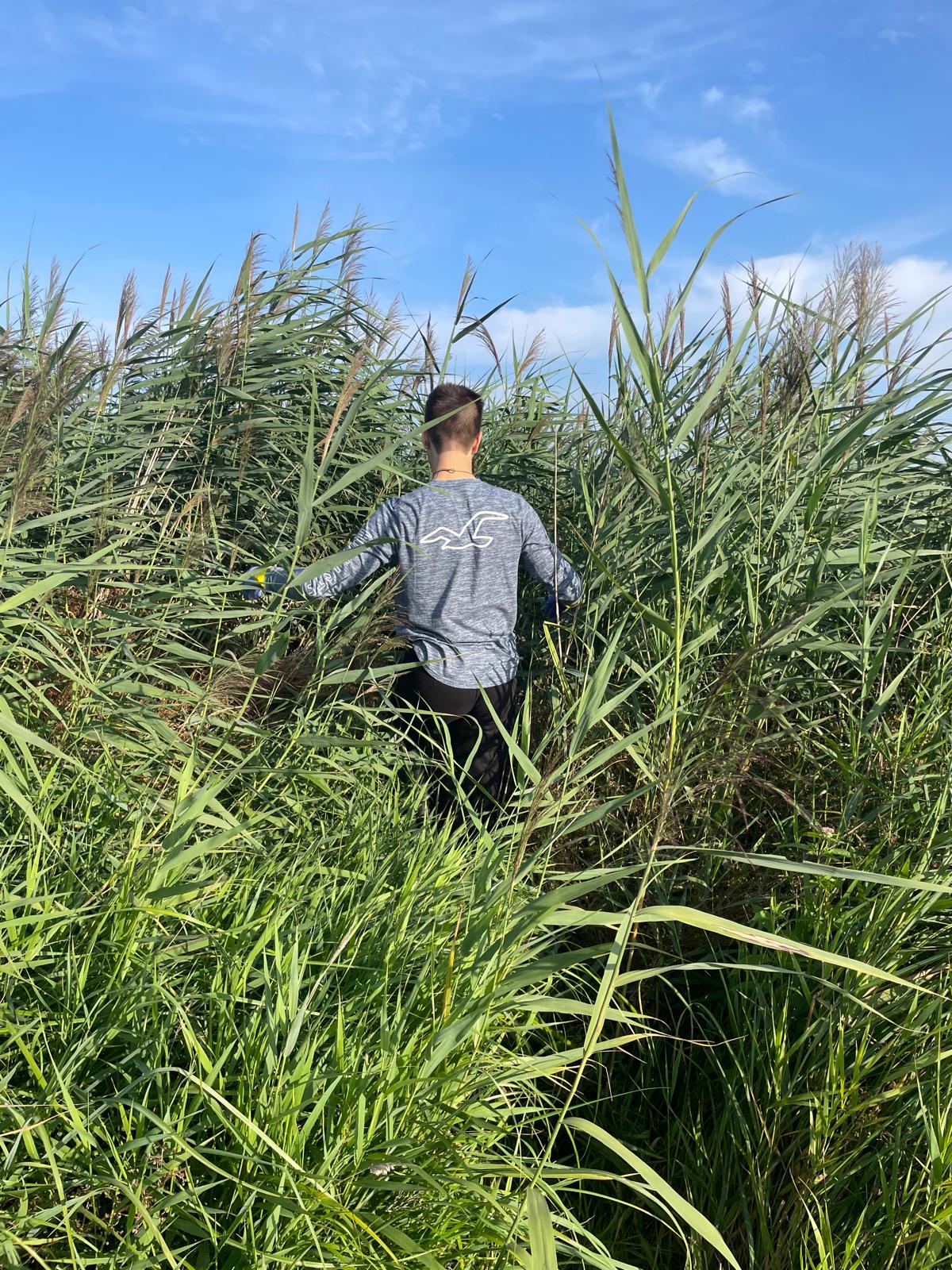
Mapping Connections
Anoushka Jain set out to connect climate and nature-related researchers across the University, combing more than 200 projects and connecting more than 500 academics in the University’s climate and nature research map, highlighting their points of connection and opportunities for collaboration across disciplines.
We all exist in our own little bubbles, and it’s important to figure out what your bubble is, and how to reach out to people who don’t think about the climate crisis in the same way as you do.
Anoushka Jain
Guiliana Duron’s project focused on developing a climate innovation map for the entire Cambridge ecosystem. A recent graduate of Yale and the University of Cambridge with an MPhil in Architecture and Urban Studies, she will continue her academic journey next year with an MPhil in Holocene Climates in the Department of Geography, Cambridge.
Future Homes Hub
In the wake of soaring energy prices, UK electricity costs rose by over 60% between 2021 and 2023, making questions around affordability and sustainability more urgent than ever. As the country transitions toward low-carbon living, the economics of cleaner homes are under scrutiny. That’s where Adela Palanova stepped in. Her project examined the comparative running costs of new all-electric homes with traditional gas-heated ones.
To investigate, she designed a toolkit to measure and compare operational energy use and costs across UK homes. Her analysis revealed a striking paradox: while new builds consume significantly less energy, their running costs are often higher due to electricity prices. Adela’s work highlights a critical tension in the transition to low-carbon living: cleaner doesn’t always mean cheaper, and policy must keep pace with technology to ensure affordability.
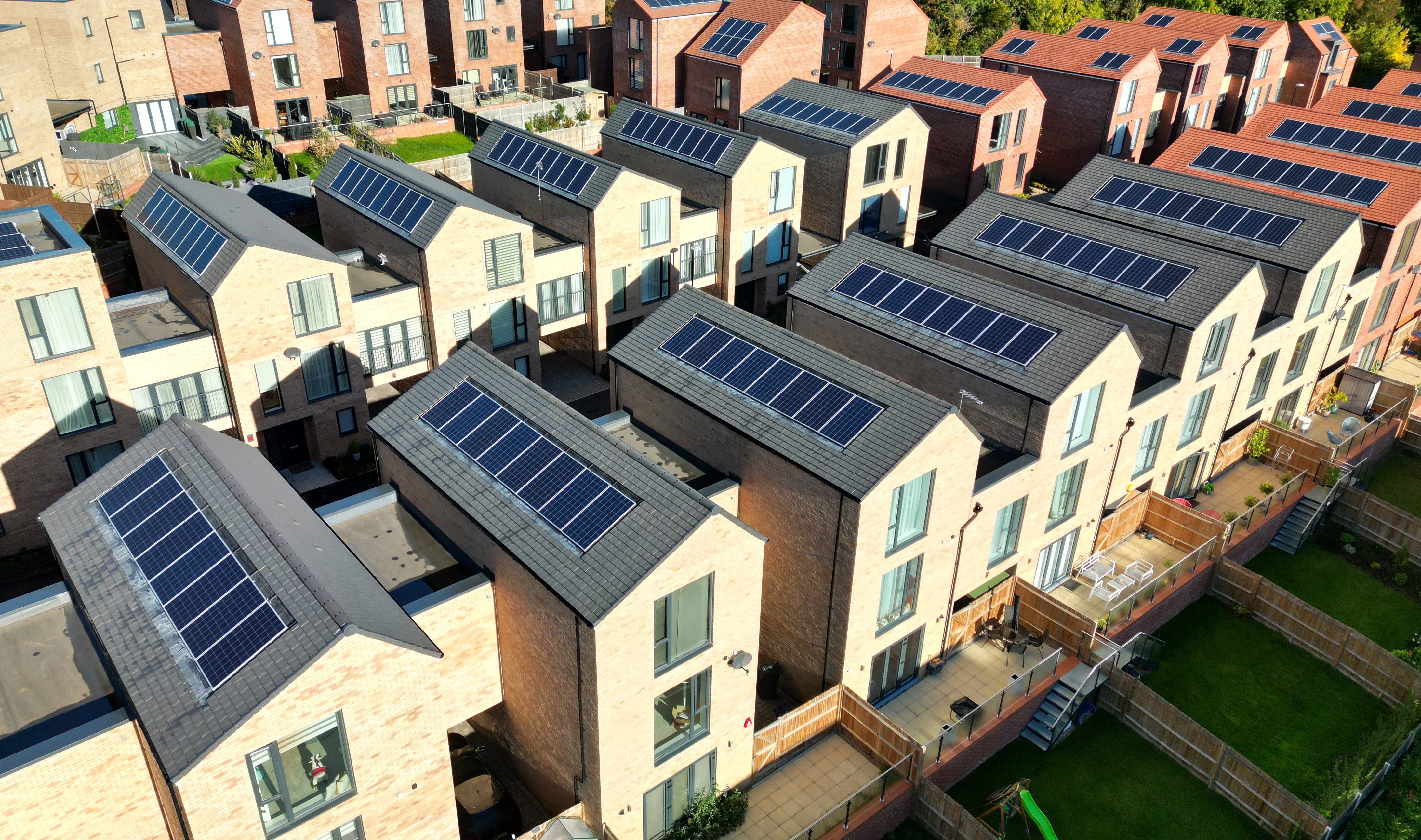
It’s not just about the science - it’s about who hears it, and how.
Technology may be racing ahead, but without strong bridges between research and policy, progress risks stalling. Rasalla Watson stepped into that critical space, exploring how researchers and policymakers connect, and why those connections matter. As a Policy Project Assistant at Cambridge Zero, Rasalla spent more than 20 hours interviewing academics and decision-makers, uncovering what each side values in how they connect: reports, workshops and professional networks.
His final report revealed how policymakers crave clarity in quick, sharp executive summaries that point the way forward, whereas academics linger in the depths of detail, unpacking evidence and tracing the threads of “how” and “why”. One speaks in arrows pointing forward; the other, in maps that chart the landscape of knowledge.
Unlike climate change, bridging this gap doesn’t need a grand solution. It simply needs trust and mutual understanding - built through fellowships, workshops, and, as policymakers stress most, friendships.
Rasalla Watson
The Glove Project: revealing the hidden cost of clinical sustainability
From lab benches to landfill, Elise Wilkinson traced the carbon footprint of single-use nitrile gloves and found climate clues in every stage. Wilkinson’s Glove Project explored how the School of Clinical Medicine uses gloves, by tracking their environmental impact through procurement data and a Life Cycle Assessment.
Wilkinson uncovered carbon “hotspots” in the glove’s journey from manufacture to disposal. Her findings challenge the assumption that greener materials alone are the solution, revealing that how gloves are transported, used, and discarded can be just as critical.
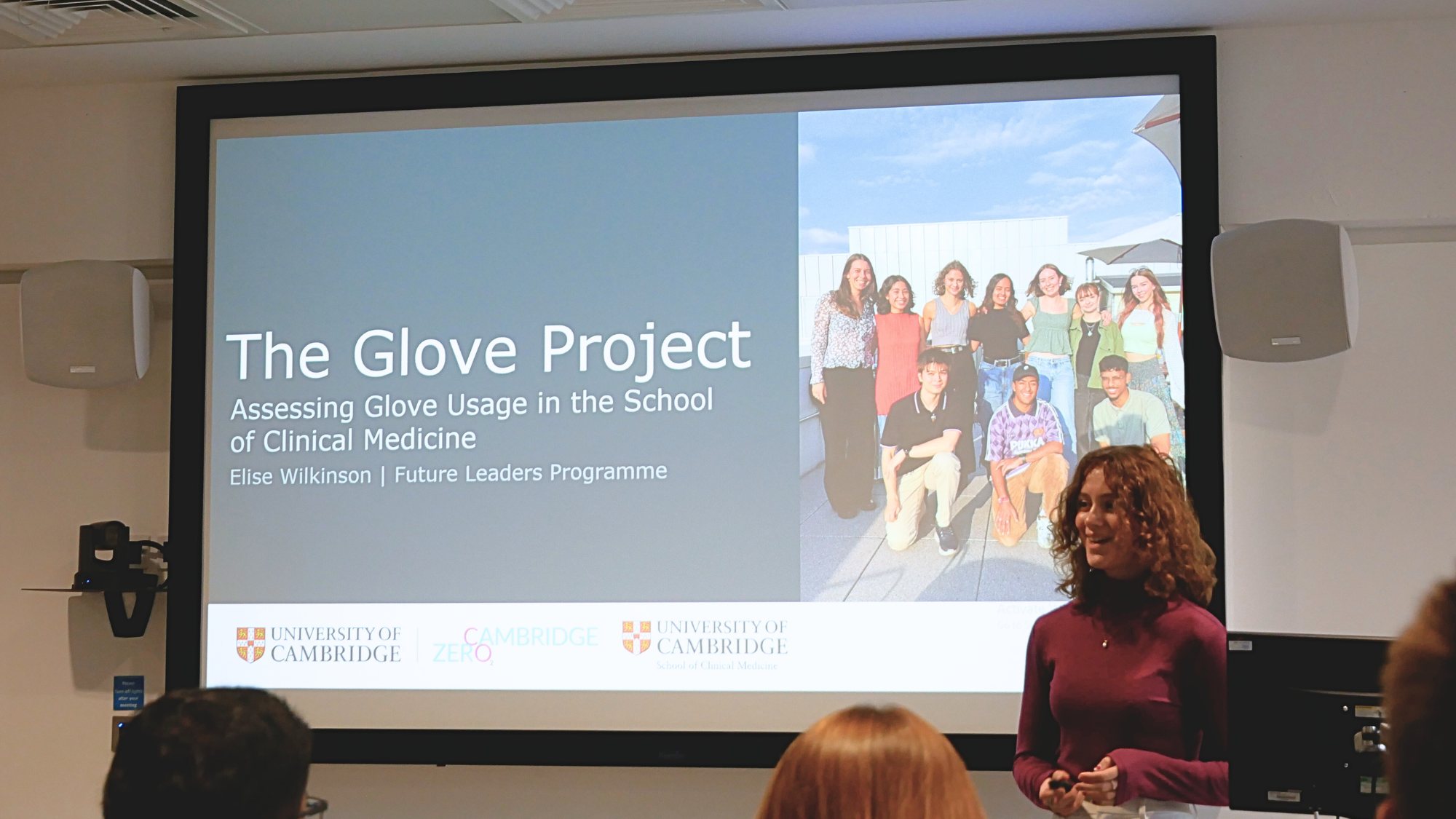
The project identified practical steps the University can take to reduce impacts linked to glove use. The findings could help inform broader institutional policies, not just within the SCM but potentially across other Schools (and, aiming high, even other universities), supporting a shift towards more climate-conscious laboratory practices.
Elise Wilkinson
Sustainability Education
Exeter Geography graduate, Anya Kennedy, highlighted examples of best practice in climate and sustainability education across the University’s Schools.
An aspiring primary school teacher, Anya praises the FLP for the soft skills she has developed during the programme.
Interviewing academics at the university has helped me hone my interpersonal skills and my ability to represent an organisation in a professional interview setting.
Anya Kennedy
Grace evaluated Climate and Sustainability Education (CSE) practices across the School of Biological Sciences, with a spotlight on the Department of Veterinary Medicine. Through literature reviews, surveys, and stakeholder interviews, Grace mapped out strengths and identified opportunities for improvement, highlighting the importance of embedding climate literacy in veterinary training while laying the groundwork for broader institutional change.
Veterinary professionals sit at an interface of science, industry, and public life, yet they’re often left out of conversations about climate and sustainability.
Grace Holtom
The projects of this year’s cohort remind us that leadership in climate and sustainability takes many forms, from homes and habitats to policy and practice. The next chapter begins with the 2026 FLP cohort. Keep an eye on our socials and join our student newsletter to hear when applications open. Grace’s reflections in the video offer a guiding thread for those ready to weave their own contribution into the story.
